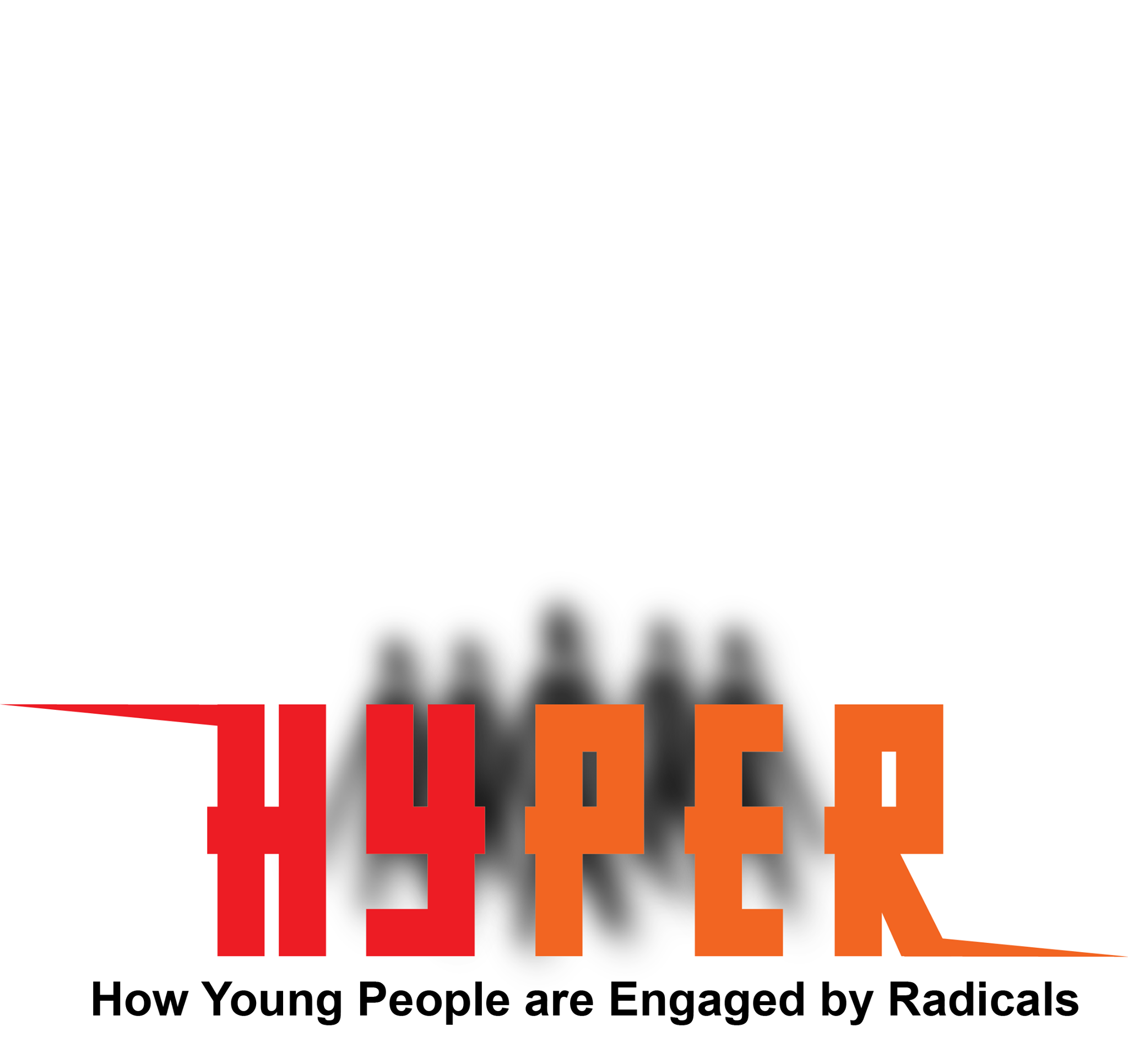 |
HYPER Erasmus+ project 2019-21 |
The HYPER (How Young
People are Engaged by Radicals) Erasmus+
project involves 6 partners from 6 countries:
1.
JugendfördervereinParchim/Lübze.V.,
project coordinator, (Germany)
2. The
Rural Hub, (Ireland)
3. E-Juniors,
(France)
4. REINTEGRA,
(Czech Republic)
5.
Centre for advancement of research and development in educational
technology (CARDET), (Cyprus)
6.
Lancaster and Morecambe College, (United Kingdom)
Europe
faces a real and ongoingthreatfrom violent extremism.
A smallminority of groups continue to present false
arguments and reasoningthatseek to justifyattacks on innocent civilians. MemberStates
are beingurged to takemeasures
to preventextremistvoices and messages reachingthosewho are mostvulnerable
to these radical views. There is a perception thatthose
at risk of radicalisation have a lowlevel
of education and wouldgenerally fit the
classification of disadvantagedyoung people but
extensive researchindicatesthat the demographics in
relation to religion, age, sex, education and financial backgrounds vary. What has
been foundisthatmanybecomeradicalized in response to
emotive messages and visuals and through frustration or outrage at perceived
injustice or inequality. There is no obvious profile of a personlikely
to becomeinvolved in extremism or a single indicator
of when a personmight move to adopt violence in
support of extremistideas. Radical extremists have
shown a mastery of global communication networks, using the Internet to disseminategraphicvideos and electronic magazines to spread
anti-establishment rhetoric and volumes of ‘fake news’ items to attractpotentialsympathizers. On social media, extremistsechothese messages and reach out to the curious
and impressionable. Facebook has 1.3 billion activeaccounts and isused by
extremists to share information and propaganda and to identifypotentialrecruits.
Twitter provides a vehicle to disseminate information in real time, providing
‘breaking news’whichcanbe real of fake, often to gain
sympathy or incite violence or hostility. Extremist groups use engagingvisuals and hip-hop soundtracks on YouTube to targetyoung people. Cyber magazines such as Inspire and Dabigshareskillfullyedited information and images to reach
a wide audience.
Today’syoung digital natives are increasinglyaddicted to competitive online gaming wheremuch of the action takes place in hostile
environments. The pro-aggression attitude within the on-line gaming world promotesbullying, harassment, homophobia, racism andmisogyny. There are a range of extremist groups and
narratives thatpromote the use of violence, which
affect individuals and communities right across Europe. Theseinclude
ISIS; Al Qaida; extreme Right and Left Wing quasipoliticalgroups.
Global eventslike the economiccrisis
and the conflicts in NorthAfricathatspawnedthe recent
influx of migrants throughout Europe are alsoimpacting
local communities. Thesecansometimes lead to
community tensions, fuel suspicion, and create divisions between people fromdifferent cultures and backgrounds. Tensions in local communitiesbetweendifferentethnic groups; feelings of
grievance and injustice; ‘them and us’ thinking; aneed
for identity, meaning and belongingare justsome of the factorsthat are
common place in Europe today and thesefactors help
create the perfectconditions for radical extremists
to operate. The process of radicalisation isdifferent for everyindividual
and cantake place over an extendedperiod
or within a very short time frame.
Radicalisation needs to beunderstood as a process not an event. As a process, itis possible to
intervene
to safeguardvulnerableyoung people. The chances of
success for anyproposedintervention canbesignificantlyincreasedif the anti-radicalisation
message isdelivered by a crediblevoicefromwithin
the youthcommunity.
The aim
of the HYPER projectis to design and produce a full
suite of educationalresourcesthat show the process of
radicalisation in action. Theseresourceswillfocus
on demonstrating how radicalisation canhappen on the mostpopular
digital and social media platformswheretoday’syoung
people hang out and wheremany are at theirmostvulnerable. The suite of simulation resourceswillact as a gateway to an online learningenvironmentwhere a wide
range of
suitable and appropriate training resourceswillbeprovided.
To accompanythese simulationresources
the project consortium willdevelop a peer training
programme for young people interestedin
beingcrediblevoicesagainst radical extremistrhetoric and actions. Education is one of the key
intervention toolsavailable to EU Member States
to counteract the growthof radicalisation
and frontlineyouthworkerswho engage with a wide
cross-section of young people in a variety of formal, informaland
non-formal settings are the mostappropriateindividuals
to lead thisfight. To support theseyouthprofessionals
HYPER willdevelopbespoke in-service and induction
training programmes to enablethem
to extract the maximum benefitfrom the full range
of proposedtools. In the words of Cecilia Malmström,
EU Commissioner for Home Affairs “no country issparedfrom
the scourge of violent extremism but still far too few EU Member States are
facingup to thisrisingthreat. Weneedstrong, preventivemeasures to counterextremism
in all itsforms”.